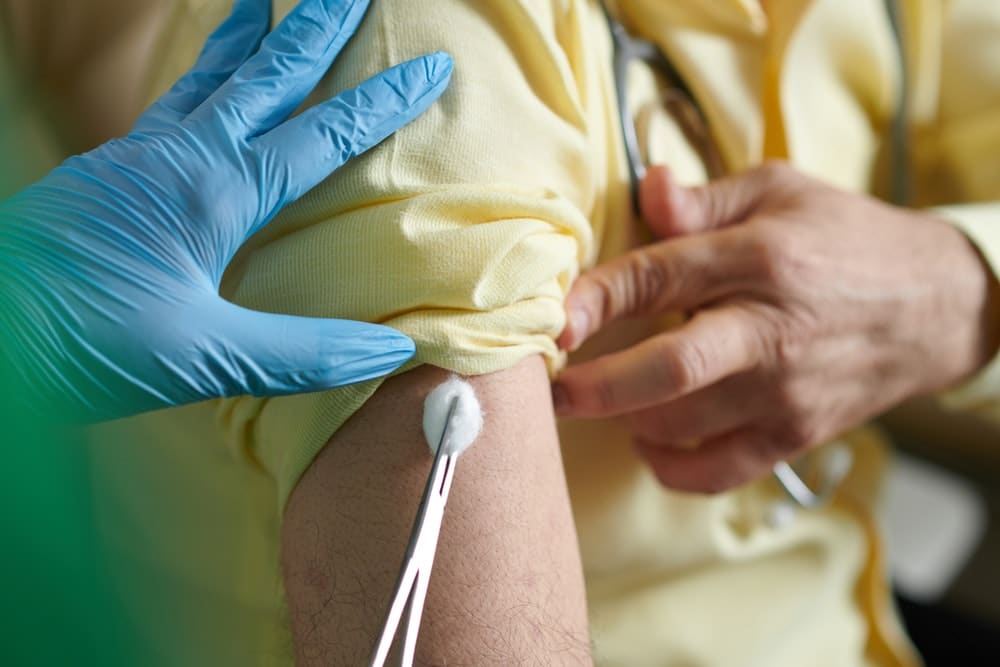What Are the Best Approaches to Increase Vaccine Uptake in Hesitant Populations?

In a world grappling with pandemics and the ensuing health crises, the term ‘vaccine’ has assumed prime importance. The unprecedented speed with which COVID-19 vaccines were developed and distributed globally is a testament to the power and potential of science and collaboration. However, alongside the triumph of their invention, a challenge has emerged that is as crucial as the creation of the vaccines themselves – ensuring their widespread acceptance and uptake. This article aims to delve into the issue of vaccine hesitancy and explore effective strategies to increase vaccine uptake in hesitant populations.
Understanding Vaccine Hesitancy
Before delving into the solutions to address vaccine hesitancy, it is essential to comprehend the roots of this issue. Vaccine hesitancy is a complex phenomenon influenced by a host of factors, such as misinformation, lack of trust in healthcare systems, and individual beliefs. A comprehensive understanding of these aspects is necessary to devise strategies that will result in higher vaccine uptake.
Dans le meme genre : How Can Intergenerational Programs Benefit the Cognitive Health of Seniors?
A scholarly review of numerous studies reveals that vaccine hesitancy is not a monolithic phenomenon. It varies across time, place, and vaccines. While some parents might be hesitant about vaccinating their children, others might be skeptical about certain types of vaccines. It is also essential to note that vaccine hesitancy is not just an individual’s issue; it’s a community concern as well. Vaccines, including the COVID-19 vaccines, are most effective when the majority of the population is vaccinated, creating a community-wide shield known as herd immunity.
The Importance of Trust-Building
Building trust is a vital component of any strategy addressing vaccine hesitancy. The evidence suggests that trust can be fostered through transparency, accuracy, and consistency in information provided about vaccines, including the process of their development, their safety, and their efficacy.
A lire en complément : How Does Virtual Peer Support Assist in the Management of Chronic Illnesses?
An article by a leading health scholar points out that communication from trusted sources can have a significant impact on vaccine uptake. This could include healthcare providers, community leaders, or even peers who have been vaccinated. Personal stories and testimonials showcasing positive experiences with vaccination can often be more effective than mere statistics or scientific data.
High levels of trust in healthcare systems and professionals are also linked to higher rates of vaccine acceptance. This underlines the importance of ensuring that healthcare systems are not just efficient, but are also perceived as caring, compassionate, and trustworthy.
The Role of Community Engagement
Community engagement is a powerful tool that can be used to address vaccine hesitancy and increase vaccine uptake. It involves actively involving community members in vaccination efforts, whether it’s through planning, decision-making, or implementation. Community engagement can lead to context-specific interventions that consider local realities and are, therefore, more likely to be effective.
Several studies have highlighted the success of community-based interventions in increasing vaccine uptake. For instance, outreach programs where community health workers visit homes to provide vaccines and information about them have been successful in several regions. Similarly, community-led information sessions or town hall meetings can be instrumental in addressing misconceptions and fears about vaccines.
Tailoring Communication Strategies
Another effective approach to combat vaccine hesitancy is by tailoring communication strategies to target specific populations. This involves understanding the unique concerns, beliefs, and informational needs of different groups and designing communication messages accordingly.
Children, for instance, might need engaging, easy-to-understand materials about why vaccines are important. Parents, on the other hand, might require detailed information about the safety and efficacy of vaccines. Certain minority or marginalized groups might have specific concerns rooted in historical injustices or cultural beliefs. Tailored communication can address these unique concerns and needs, thereby increasing the likelihood of vaccine acceptance.
Leveraging Technology
In this digital age, technology can play a significant role in enhancing vaccine uptake. Internet and social media platforms can disseminate reliable information on vaccines effectively. They can also be used to counter misinformation and dispel myths about vaccines.
Digital platforms can also provide a space for individuals to share their positive vaccination experiences, which can influence others. Additionally, technology can make the process of getting vaccinated more manageable. Online booking systems, reminders about vaccination dates, and digital vaccination certificates can all contribute to a smoother vaccination journey.
In summary, tackling vaccine hesitancy and increasing vaccine uptake requires a multi-pronged approach. Building trust, engaging communities, tailoring communication, and leveraging technology are some of the strategies that have demonstrated effectiveness. As we move forward in this fight against health crises, it is crucial to continue researching and refining these strategies to ensure everyone is protected.
Emphasis on Frequent and Transparent Communication
To increase vaccine acceptance and uptake, it is imperative to underline the role of frequent and transparent communication, particularly from trusted sources. According to a free article published in an international public health journal, vaccine confidence can be significantly increased through comprehensive, consistent, and transparent information dissemination.
Frequent communication can help in addressing the questions, concerns, and misconceptions people may have about the COVID vaccines. It has been found beneficial in correcting misinformation, which is often a significant contributor to vaccine hesitancy.
For instance, a systematic review by Google Scholar revealed that some people hesitate to take vaccines due to misconceptions about their side effects or efficacy. Regular communication can help in demystifying these misconceptions by providing factual, easy-to-understand, and up-to-date information about the vaccines.
Transparency in communication is also critical in building trust. According to an article published in PubMed, revealing the process behind vaccine development, testing, and approval can foster confidence in vaccinations. It can reassure people that the vaccines are safe, effective, and necessary to curb the spread of infectious diseases.
Moreover, the source of communication can significantly influence its effectiveness. Trusted sources like healthcare professionals, public health officials, or community leaders can play a pivotal role in increasing vaccine uptake. A data extraction study by organizations like SciProfiles and Scilit suggests that messages from trusted sources are more likely to be received positively and acted upon.
Conclusion
Addressing vaccine hesitancy and encouraging vaccine uptake is a complex, multifaceted challenge that requires collective effort. From building trust in public health systems to engaging communities, tailoring communication strategies, and leveraging technology, each aspect plays a crucial role in augmenting the acceptance of COVID vaccines.
Regular and transparent communication from trustworthy sources is pivotal to counter misinformation and instill confidence in vaccines. Moreover, community engagement can help address local realities and concerns, making vaccination drives more effective.
Furthermore, leveraging technology and social media platforms can not only facilitate the vaccination process but also enable the quick and effective dissemination of accurate information. Through these concerted efforts, it is indeed possible to enhance vaccination rates and achieve the desired herd immunity.
As we continue to grapple with the challenges posed by the ongoing health crisis, it is essential to continually evaluate and refine these strategies based on research and empirical evidence. This will ensure a robust and well-targeted approach towards increasing vaccine uptake, ultimately aiding in our collective fight against pandemics. Remember, vaccines do not save lives; vaccination does. So, let’s strive together to increase vaccine uptake and safeguard public health.
